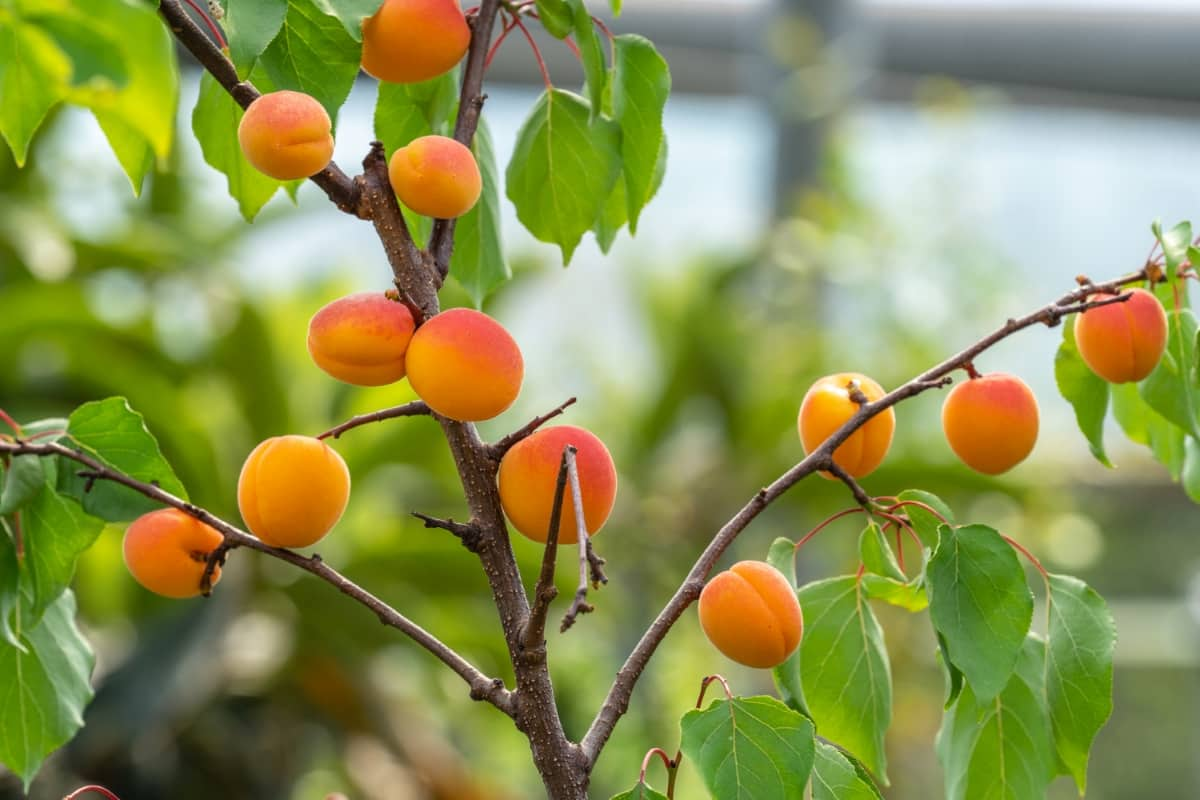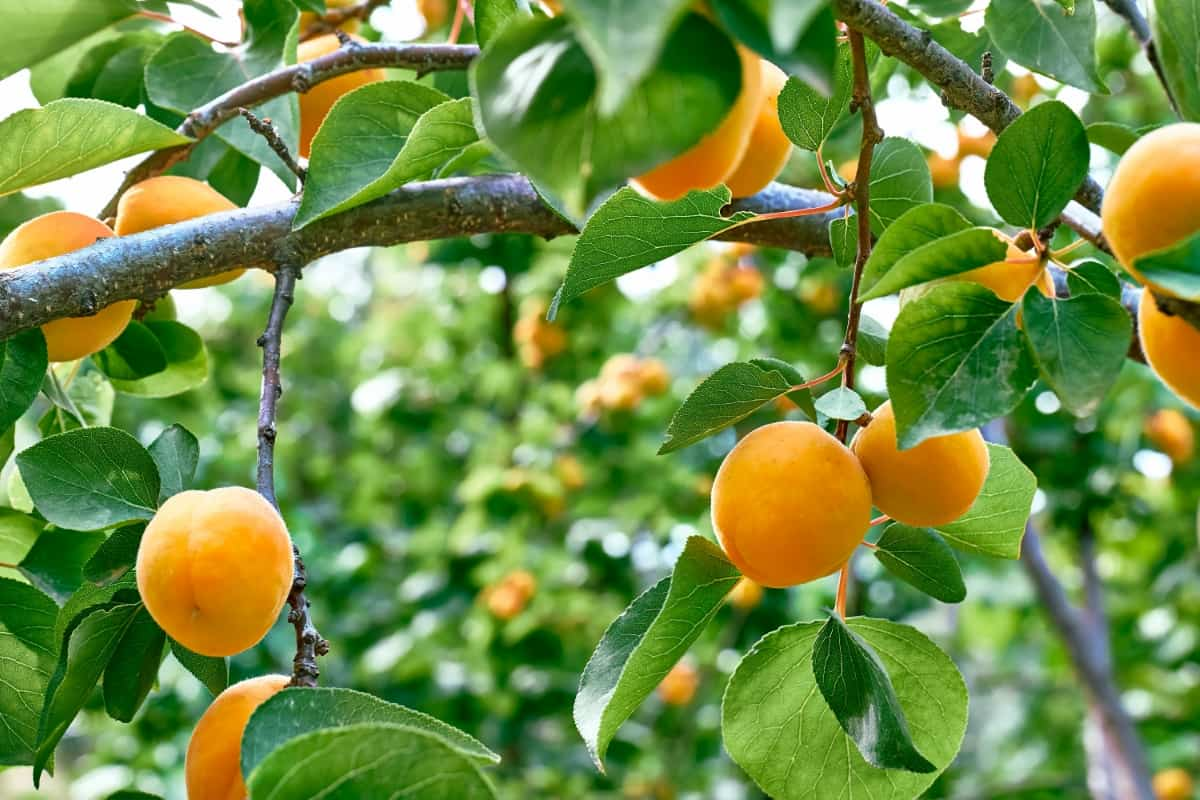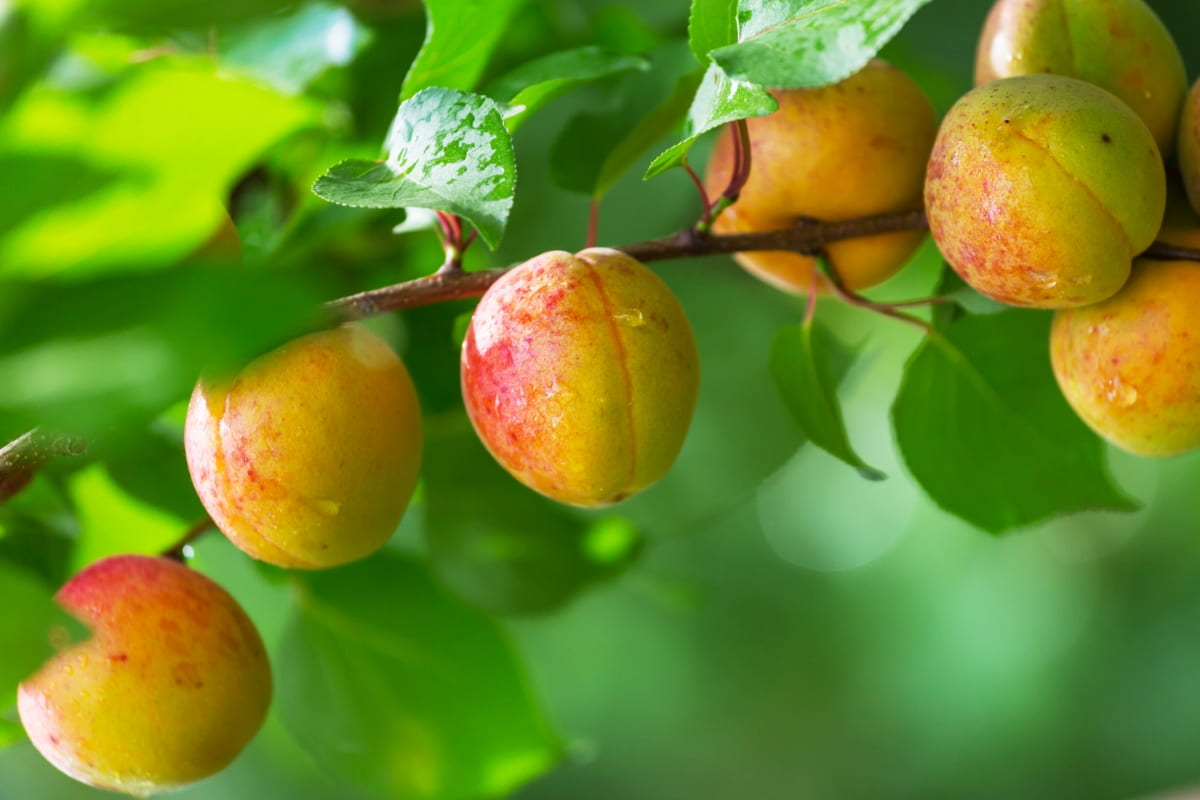Apricot trees, scientifically known as Prunus armeniaca, are deciduous fruit trees that belong to the Rosaceae family. These fruit trees are highly valued for their delicious and nutritious apricots packed with vitamins and minerals. To ensure healthy growth and abundant apricot fruit production, understand the fertilizer requirements of apricot trees. Proper fertilization is crucial in providing nutrients for the tree’s overall health and development.

Apricot Tree Fertilizer Requirements
Understanding the Nutritional Needs of Apricot Trees
Apricot trees have specific nutritional requirements that must be met for optimal growth and fruit production. These trees require a balanced supply of macronutrients, including nitrogen, phosphorus, and potassium. Nitrogen is essential for leaf and shoot growth, while phosphorus promotes root development and flowering.
Potassium is crucial for overall tree health and fruit quality. In addition to macronutrients, apricot trees also need micronutrients such as iron, zinc, and manganese. Adequate irrigation and regular soil testing are necessary to determine the soil’s nutrient content and pH levels. Providing the correct nutrients allows apricot trees to thrive and produce abundant, healthy fruit.
Essential Macronutrients for Apricot Tree Growth and Development
Apricot trees require essential macronutrients to ensure optimal growth and development. These macronutrients include nitrogen, phosphorus, and potassium.
- Nitrogen is crucial for leaf and stem development and overall vigor.
- Phosphorus aids in root development, fruit production, and energy transfer within the tree.
- Potassium is vital in water regulation, disease resistance, and fruit quality.
It is important to provide these macronutrients in balanced amounts based on soil analysis and tree requirements. Regular soil testing and fertilization practices can help maintain the appropriate nutrient levels and promote healthy apricot tree growth.
Micronutrients: Key Elements for Optimal Apricot Tree Health
Micronutrients are crucial in maintaining the optimal health of apricot trees. Although required in small quantities, these key elements are essential for various physiological processes.
- Iron, for instance, is necessary for producing chlorophyll, vital for photosynthesis.
- Zinc aids in synthesizing enzymes and proteins, contributing to overall growth and development.
- Manganese helps in the activation of enzymes involved in energy production.
- Boron plays a crucial role in cell division and carbohydrate metabolism.
- Copper is essential for reproductive processes.
- Molybdenum is necessary for nitrogen fixation and enzyme activation.
- Calcium is another essential micronutrient that apricot trees thrive on that improves leaf and apricot fruit quality.
The simple way to add micronutrients is by applying aged compost or a good, balanced fruit tree fertilizer which states micronutrients are part of the formula.
In case you missed it: Peach Tree Fertilizer Requirements: Recommendation, Timing, and Frequency of Application

Soil Analysis: Determining Fertilizer Requirements for Apricot Trees
Soil analysis is crucial in determining the fertilizer requirements for apricot trees. By analyzing the soil, we can assess its nutrient composition and pH level, which are essential in determining the appropriate fertilizer application. Apricot trees require nutrients such as nitrogen(N), phosphorus(P), and potassium(K) for optimal growth and fruit production.
The soil analysis helps identify any deficiencies or excesses in these nutrients, allowing us to tailor the fertilizer application accordingly. Additionally, the soil’s pH level affects nutrient availability to the trees. By analyzing the soil, we can adjust the pH level if needed, ensuring that the apricot trees receive the required nutrients for healthy growth and abundant fruiting.
Organic Vs. Synthetic Fertilizers: Pros and Cons for Apricot Tree Care
Organic and synthetic fertilizers are commonly used for apricot tree care, each with pros and cons. Organic fertilizers, derived from natural sources, are environmentally friendly and promote soil health. They release nutrients slowly, reducing the risk of over-fertilization. However, they may have lower nutrient concentrations and take longer to show results.
On the other hand, synthetic fertilizers are quick-acting and have higher nutrient concentrations. They are also cost-effective. However, they can harm beneficial soil organisms and lead to nutrient runoff, causing water pollution. Choosing between organic and synthetic fertilizers depends on individual preferences and specific growing conditions.
Timing is Everything: When to Apply Fertilizer to Apricot Trees
Timing plays a vital role in applying fertilizer with specific NPK (nitrogen, phosphorus, and potassium) ratios to apricot trees. To ensure optimal growth and fruit production, apply fertilizer in early spring, just before the trees start to break dormancy. This timing allows the trees to utilize the nutrients effectively as they begin their active growth phase.
In case you missed it: Coffee Tree Fertilization Requirements: Recommendation and Application Process

Apricot trees require a balanced NPK ratio of 8-12-12 to promote healthy foliage, flower development, and fruit set. Applying the fertilizer at the right time ensures that the trees receive the necessary nutrients when they need them the most, resulting in healthier and more productive apricot trees.
Preparing the Soil: Best Practices for Fertilizer Application
- It is advisable to do a soil test to determine its nutrient content before applying fertilizer.
- Based on the test results, choose a fertilizer with a balanced ratio of NPKs.
- Evenly apply the fertilizer around the tree’s base, keeping it at least 12 inches from the trunk. Avoid piling the fertilizer near the trunk, as it can harm the tree.
- After applying the fertilizer, water the area thoroughly to help nutrients penetrate the soil.
- Regularly monitor the tree’s growth and adjust fertilizer application accordingly.
Fertilizer Application Techniques for Apricot Trees
- One technique is broadcasting, where the fertilizer is evenly spread around the tree’s base.
- Another technique is banding, where the fertilizer is applied in a narrow band around the tree trunk.
- Deep root feeding is also effective, where the fertilizer is injected directly into the soil around the tree’s roots.
- It is important to follow the recommended fertilizer rates and timings for apricot trees. Fertilizers need to be applied in early spring, just before the tree starts to bloom.
- Regular soil testing can determine the specific nutrient needs of the tree.
Dosage and Frequency: Finding the Right Balance for Apricot Tree Fertilization
The recommended dosage for apricot tree fertilization varies depending on the tree’s age and specific nutrient requirements. Generally, for young apricot trees, it is advised to apply a balanced fertilizer with a nitrogen-phosphorus-potassium (NPK) ratio of 10-10-10. Apply approximately 500 grams of fertilizer every year of the tree’s age, up to a maximum of 2.5 Kg. Distribute the fertilizer evenly around the tree’s base, avoiding direct contact with the trunk.
Once the apricot tree reaches maturity, the fertilizer requirements change. At this stage, it is recommended to use a lower nitrogen fertilizer, such as a 5-10-10 or 6-12-12 NPK ratio. Apply two to three pounds of fertilizer per tree, again spreading it evenly around the base. The frequency of fertilization depends on the fertilizer type used.
Slow-release fertilizers are often preferred for apricot trees as they provide a steady supply of nutrients over an extended period. For young trees, it is generally recommended to fertilize once in early spring and again in late summer. Mature trees should be fertilized once in early spring and once in early summer.
Monitoring and Adjusting Fertilizer Regimens for Long-Term Apricot Tree Success
Monitoring and adjusting fertilizer regimens is crucial for ensuring long-term success for apricot trees. Apricot trees have specific nutrient requirements that must be met throughout their growth cycle. Regular monitoring of soil nutrient levels is essential in determining the appropriate fertilizer application rates.
In case you missed it: Mango Tree Fertilization: Schedule, Application Process

To know the nutrient content and pH level, soil testing should be conducted before each growing season. Based on the results, adjustments can be made to the fertilizer regimen to ensure that the apricot trees receive the necessary nutrients. It is also important to consider the age and size of the trees, as their nutrient needs may vary.
Conclusion
In conclusion, apricot trees have specific fertilizer requirements essential for optimal growth and fruit production. By meeting the fertilizer requirements of apricot trees, growers can ensure healthy and productive trees for years.
- Ultimate Guide to Ossabaw Island Hog: Breeding, Raising, Diet, and Care
- Ultimate Guide to Juliana Pig: Raising Facts, Size, Diet, Care, and Lifespan
- Raising Lleyn Sheep: Disadvantages, Price, Uses, Characteristics, and Care
- Ultimate Guide to Meishan Pig: Breed Facts, Breeding, Raising, and Care
- Ultimate Guide to Teacup Pigs: Raising, Diet, Lifespan, Cost, and Care
- Guide to Raising Poll Dorset Sheep: Facts, Profile, Characteristics, Uses, and Care
- Ultimate Guide to Bighorn Sheep: Characteristics, Diet, Lifespan, Breeding, and Lifecycle
- Ultimate Guide to Raising Katahdin Sheep: Farming Facts, Breed Profile, Uses, and Care
- Ultimate Guide to Raising Oreo Cows: Belted Galloways Farming Facts, Profile, Uses, and Care